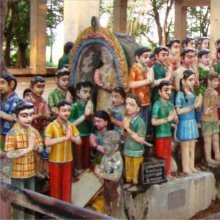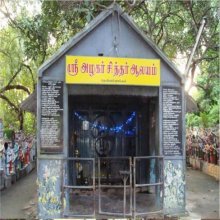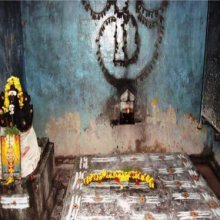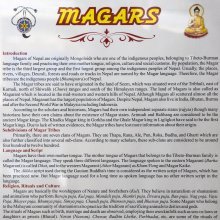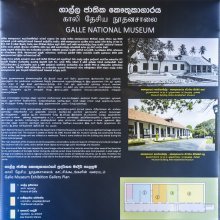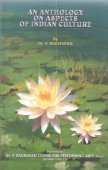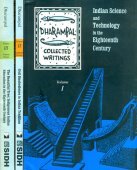Education: 1 definition
Introduction:
Education means something in the history of ancient India. If you want to know the exact meaning, history, etymology or English translation of this term then check out the descriptions on this page. Add your comment or reference to a book if you want to contribute to this summary article.
Images (photo gallery)
India history and geography
Source: Singhi Jain Series: Ratnaprabha-suri’s Kuvalayamala-katha (history)1) Education (of princes) was an important topic during early medieval times in ancient India, as depicted in the Kathās (narrative poems) such as Uddyotanasūri in his 8th-century Kuvalayamālā (a Prakrit Campū, similar to Kāvya poetry).—The Kuvalayamala (779 A.D.) is full of cultural material which gains in value because of the firm date of its composition. [...] An important topic during early medieval times was the education of princes. We have a detailed description in the Kādambarī of the education of Prince Candrāpīḍa. The description presented by Uddyotanasūri is no less important. The prince was sent under an auspicious star to his vijijā-ghara. The prince spent twelve years in receiving instructions from his Teachers. The author has given a list of 72 Kalās (kalā-kalāve).
2) Education in ancient India included the study of various religions and philosophies and attracted students from near and distant countries, according to the Kuvalayamālā.—Page 150.17 f. & 151.1-5: There is described an educational institution which included students from Lāṭa, Karṇāṭaka, Mālava, Kaṇṇujja, Godāvarī (Nasik), Mahārāṣṭra, Saurāṣṭra, Śrīkaṇṭha (Thanesvar) and Sindha. The courses of study comprised Vyākaraṇa, Buddhism, Sāṃkhya, Nyāya, Anekānta or Jaina and Lokāyata or Cārvāka philosophies. At another place (151.6-11) the prince came across persons who cultivated the seventy-two arts and sixty-four sciences, [...].

The history of India traces the identification of countries, villages, towns and other regions of India, as well as mythology, zoology, royal dynasties, rulers, tribes, local festivities and traditions and regional languages. Ancient India enjoyed religious freedom and encourages the path of Dharma, a concept common to Buddhism, Hinduism, and Jainism.
See also (Relevant definitions)
Starts with: Educational institution.
Ends with: Greek education.
Full-text (+306): Ucca-shikshana, Prashikshana, Saririka, Vinayana, Samskara, Shiksha, Adharashiksha, Tamtrikashikshana, Amashiksha, Unnatashikshana, Vidyadhikari, Shikshanakemdra, Vidyailakhe, Jyotisha, Shuravidya, Uccashiksha, Shikshapaddhati, Sahashikshana, Dana, Vrittishikshana.
Relevant text
Search found 226 books and stories containing Education; (plurals include: Educations). You can also click to the full overview containing English textual excerpts. Below are direct links for the most relevant articles:
Buddhist Education in Thailand (critical study) (by Smitthai Aphiwatamonkul)
1.2. Evolution of Modern Education < [Chapter 2 - The Thai Sangha System of Education]
6. Buddhist Ethics Provides room for a better tomorrow in Thailand < [Chapter 4 - Role of the Buddhist Education in The Thai Society]
3. Education System in Thailand < [Chapter 2 - The Thai Sangha System of Education]
Formal Education System in Ancient India (by Sushmita Nath)
Subjects studied in the Epic Period < [Chapter 5 - Subjects studied in the Vedic and Buddhist period]
Yoga and Future Shock < [April - June 1973]
Values in Education < [July – September, 2000]
R. K. Narayan’s Views on Women’s Education < [April – June, 2008]
Social philosophy of Swami Vivekananda (by Baruah Debajit)
Chapter 6.1 - Meaning and Aims of Education according Swami Vivekananda
Chapter 6.3 - Education of the Downtrodden Masses of India
Chapter 6.8 - Conclusion (Swami Vivekananda’s concept of Education)
Harshacharita (socio-cultural Study) (by Mrs. Nandita Sarmah)
Part 1: Meaning Of Education < [Chapter 3 - Education System]
Part 2: Formal Education and Informal Education < [Chapter 3 - Education System]
Part 5: Women Education < [Chapter 4 - Status of Women]
Complete works of Swami Abhedananda (by Swami Prajnanananda)
Preface < [Discourse 2 - The Ideal of Education]
Chapter 5 - Education in India < [Discourse 1 - India and Her People]
Chapter 1 - The Ideal of Education < [Discourse 2 - The Ideal of Education]
Related products
(+11 more products available)
